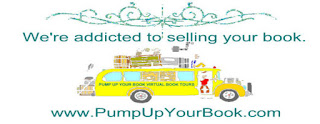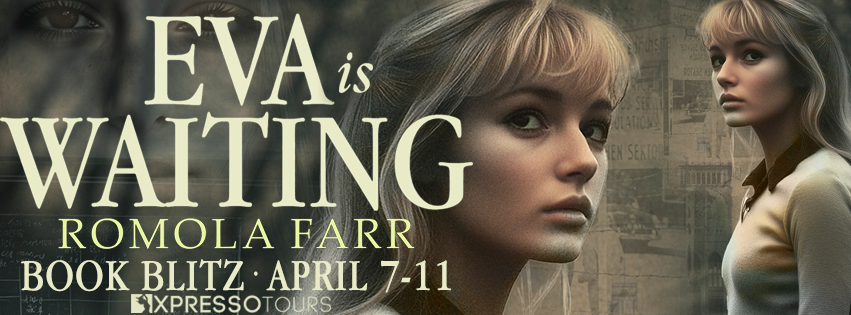Chapter 1
November 5, 1878
“I don’t care what it costs—get it
done! Stop lollygagging, and make Morrison sign that paper. Rohrbach has other
offers, and he knows I’m chomping at the bit—”
Julia Carson cringed at the sound
of something heavy smashing against the wall adjoining the sewing room, but a
glance at her mother showed that Lester Carson’s histrionics ruffled her not at
all. When did they ever? But Julia
knew that was the only way her mother could successfully navigate around her
husband’s outbursts.
Her mother, with her lustrous back
hair piled atop her head in perfect fashion, pulled another straight pin from
between her teeth and said, “Stop wiggling, Julia. How will I ever get this hem
pinned if you keep swiveling about?”
Julia sighed, feeling the familiar
constriction and barely telltale rattle in her chest. But thank the heavens
autumn was here. A glance out the wide windows showed a bright, crisp morning,
though menacing clouds were gathering in the distance. She wouldn’t be surprised
if the first snow fell later that day.
This summer had been the worst yet,
and twice her parents had flown into a panic when Julia had awoken in the
middle of the night unable to breathe. The tonics the doctor had given her did
little else but make her woozy, and though Reverend Charnel urged her to give
her burden to the Good Lord, it seemed He wasn’t all that keen on lifting it
from her shoulders. Predictions over the years said she’d never make it to her
sixteenth birthday, but yet, here she was.
“—Get out! Just git!”
Her father’s boorish directive
followed on the heels of two short, fastidious men in three-piece suits making
a hasty exit from her father’s study. Upon noticing Julia standing on the round
dais and her mother squatting with pins in her mouth, the solicitors nodded
brusquely from the hallway and muttered their farewells, their hats clenched in
hand.
Julia’s mother muttered, “Heavens,
your father is putting those poor men through the wringer.” She shook her head
and finished pinning the last section of hem of the elegant white satin party
dress. Then she took a step back, her petticoats swishing under her toile
skirt, and admired her handiwork.
Though her mother could easily
afford to hire the finest dressmaker in Wyoming
Territory, she made all of Julia’s
dresses and blouses, spending her quiet evenings, especially in the winter
months when snow piled up the windows, bent over her tiny stitches. The sewing
room in which they stood overflowed with bolts of lace and strings of seed
pearls that her mother painstakingly added in beautiful detail to Julia’s party
dresses.
And this dress would be the most
magnificent yet, for, as her mother kept reminding Julia, “No one must outshine
you on your sixteenth birthday.”
But there was more in her mother’s
eyes than admiration for her handiwork and pride in her only child—her only living child, Julia noted.
Because, wasn’t that at the heart of this celebration? That Julia was the only
child of Danielle and Lester Carson to have survived into adulthood.
And that was what Julia read in her
mother’s eyes. Pain and loss. Three stillborn babies lay in the nearby family
graveyard. Alongside the small coffin containing Julia’s older brother, who’d
succumbed to the influenza when he was four—two months before Julia was born.
Julia could never be free of her
mother’s loss, never be absolved. Her parents stifled and smothered her with
love and protection and worry because, as her mother often lamented, “We
couldn’t ever bear to lose you. It would kill us both.” Though her father never
voiced such sentiments aloud.
And it was hard to interpret his
heavy hand and unfair restrictions as fear of loss. No, her father’s actions
seemed anything but fearful, and his protection anything but loving and
concerned.
But no matter. She would soon find
a man to wed, and though she’d been so sheltered, hardly even permitted to say
hello to any unhitched young man, even at church, she secretly hoped she’d get
her chance at her party. A party that would make the high-society columns in
papers all the way to the Mississippi,
if her mother had her way. Her parents were sparing no expense for an event
that would no doubt be hailed as the most extravagant gala Laramie
City had ever seen.
Julia’s throat tightened at the
attention that would be heaped upon her that night, for crowds of people made
her terribly claustrophobic, often exacerbating her asthma. Her rigorous
protests for a small family gathering had been lost on unresponsive ears.
Though, why was she surprised? This party really wasn’t about her, or for her,
for that matter. It was, in essence, a way for her father to show off his
opulence and success as Laramie’s
foremost cattle rancher. And to flaunt
that success before the Morrisons, who, as a matter of course, were not invited
and never would be.
“Oh, you are such a beauty,” her
mother crooned. “Spin around and show me.”
Julia dutifully spun, the layers of
eyelet-lace-edge skirts whirling and fluttering like snowflakes on a breeze.
Wearing such a gorgeous dress made Julia feel beautiful indeed. But she
wondered if any dress could negate her flaws. Her pale complexion that freckled
terribly in the sun. Her long lifeless hair the color of bark that constantly
slipped out of her pins. And worst of all—her height. She stood over her mother
by four inches. What man would want to look up to his wife? At five feet eight,
she was taller than most of the ranch hands on the farm. Except Ty, her
much-older cousin, who was like a brother to her. And, of course, her father,
who towered a head above every man in town. The Carson
men had always stood out prominently in a crowd—due to both height and
propensity for bluster. But, unlike Julia’s uncles, Lester Carson was more the
quiet but intense type who believed in an economy of words. Except when someone
sparked his anger.
Julia stepped down from the dais
and turned so her mother could fuss with the button loop at Julia’s neck. The
spacious sewing room with its floor-to-ceiling windows spilled warm light
across the thickly varnished oak floorboards that shone like glass. Dust motes
danced on the air.
“Mother, why has Father been
meeting with his lawyers so often? And what is he so crotchety about?”
Her mother’s sigh blew warmth onto
Julia’s neck, making a shiver run down her spine. “It’s nothing to concern
yourself with. Another land deal. He wants to acquire the thousand-acre parcel
to the northwest.”
Julia shook her head. “But why?
Doesn’t he own enough land? Aren’t fifty thousand acres sufficient for his
purposes?”
“It’s the water access. You know in
late summer Dead Man’s Creek is the only source of water for the cattle. That
property has the only year-round spring for miles around.”
“So? Father has always moved the
herds north in the fall.”
“And it appears he doesn’t want to
be bothered to do so any longer.”
Julia fell silent. Once her father
got a hankering in his craw, there was no pulling it free. But this was
something different than his normal dealings. He’d been downright perturbed
these last months, working himself into a frenzy, more apt to snap at Cousin Ty
and Sheldon McManus, his ranch foreman, than ever before.
“Is . . . Father ill?”
Her mother turned Julia to face
her. Julia saw close up the tired lines etching her mother’s still-beautiful
face. Dark splotches sagged under her eyes, and her mouth drew into a tight
line.
“No,” she said, then hesitated.
“Though, I daresay if he keeps up like this”—she gestured to the now-closed
door to the study, where Lester Carson was tromping across the floorboards so
loudly, Julia feared he might bust through them—“his heart just might succumb
from the aggravation.”
But there was something her mother
wasn’t telling her. Something—Julia knew—whose source went way back, before
Julia was born. Something neither parent ever mentioned, but on occasion Julia
caught a whiff of, like the scent of a moldering dead carcass carried on the
wind. In the late hours Julia sometimes heard terse words spoken behind closed
doors. Words that often included the name Morrison.
Her father hated Stephen Morrison.
That was a fact everyone in Wyoming Territory
knew well. And Morrison hated Julia’s father. But no one seemed to know what
had started the feud that had been going on between the two men—and that had
dragged both families through the mud of hate and threats—for decades. Ty had
once let slip words that hinted at a card game and someone cheating, but for
all Julia knew, his words were little more than grist for the rumor mill in
town.
And she’d heard her father tell his
lawyers to make Morrison sign the papers. Did Stephen Morrison own that land
her father coveted? If so, he had to know Morrison would never sell—not on his
life.
Oh, all this land wrangling and
vying for power made Julia more than weary. She felt like a prisoner in her own
home. Her upcoming party was the only bright glimmer of hope on the horizon. If
only it held the promise of escape. Would she ever be free of her father’s
heavy hand?
The door to the courtyard swung
open, and Ty came in, a grin on his sun-baked face, his unruly wheat-straw hair
splaying out from under his floppy hat. He touched the brim and said, “Ladies,”
then knocked on the door to the study. As Julia’s mother gathered up her
scissors and pins and spools of thread, Julia felt a sudden urge to change out
of her fancy dress, throw on a riding skirt and blouse, and race across the
range on Little Bit. The house seemed to be closing in on her, and the glorious
late-autumn day was passing her by.
Her father opened the door and
exchanged quiet but terse words with Ty. Then, without another word or a glance
at his wife or daughter, he strode past the open doors of the sewing room and
down the hallway, his footfalls echoing loudly.
Ty turned to Julia and her mother,
his soft gray-green eyes thoughtful and intense. “I’m headin’ to town with the
wagon to pick up supplies at Harold’s. Need anything at the mercantile?”
“Milkman Mary should have our order
ready for pickup,” her mother said. “I’d be obliged if you stopped in and
picked up the milk and cream.”
“May I go with you?” Julia asked.
She’d rather stroll the shop windows than saddle up her mare and ride, alone,
with no one to talk with. And Ty, always so funny and cheerful, was just the
company she needed right now.
“Dressed like that?” He pointed at
her. “You’d ’bout give every fella apoplexy if’n they saw you saunterin’ down the street.” He sashayed
around the room, making Julia laugh, as he stroked the wiry goatee on his chin.
Though Ty was her cousin and
fourteen years her senior, he had come under the wings of her parents when he
was twelve due to a mudslide that had left him orphaned. The two of them had
been raised like siblings, and Julia couldn’t imagine having more affection for
Ty if he’d been her brother. Or Ty having a fiercer sense of protectiveness for
his younger relation.
“There’ll be no town visit today,”
her mother said sternly.
“Why not—?” Julia tried to keep the
whine out of her voice. It wasn’t fair.
“Because I said so.”
Ty frowned. “I’d keep her safe,
ma’am—you know that—”
“No, Ty. It would be highly
imprudent . . . at this time. This discussion is over.”
Ty promptly shut his mouth, as he
was wont to do when her mother spoke in that tone.
Her mother hastily stuffed the
remaining notions into her sewing box and latched the cover. She looked over at
Julia. “Have Edna help you out of that dress, and hang it up in my parlor so I
can hem it.” Her tone brooked no argument or even a reply.
“Yes, Mother,” Julia said anyway,
keeping her tone even and respectful, though she held back what she really
wanted to say. I’m a grown woman. I can
take care of myself. I’m not your sick little baby anymore. How will I ever
live in the world if I’m sheltered from it?
Ty stood and watched as Julia’s
mother exited the room, then turned to Julia, kneading his hat in his hands.
“She’s only bein’ protective.”
Julia scoffed. “I know Laramie’s
a rough town, but surely—”
“You didn’t hear the news? What
happened last night?”
Julia shook her head as a chill
settled on her neck. She’d seen the Daily
Sentinel lying on the credenza in the dining room, but she hadn’t glanced
at the headlines. Fights and trouble plagued the streets of Laramie,
always had. Most people—decent folk—knew to stay away from Front Street at
night, where the brothels stretched for blocks and drunken men poured out of
saloons to fight, cheered on by equally drunken crowds. And no decent woman
would wander the streets of downtown past dark unchaperoned.
“Two fellas were shot, right in the
middle of Grand Street. One
o’ the fellas had a woman on his arm, and in the brawl that ensued, she was
. . . trampled to death.”
Julia felt the blood leave her
face. “Was . . . she someone I knew?” She swallowed at the reticence
evident on Ty’s face.
“Lola Peterson—”
“Mrs. Peterson? The school marm?”
The young woman who’d taught Julia her letters and read her first primers with
her had recently wed. Oh, Lord, it couldn’t be . . .
Ty nodded. “Your ma hadn’t told
you.” It was a statement, an observation. His lips quirked in an expression of
empathy. “I’m so sorry. I know how much ya liked her. I did too.”
Julia had a flash of memory—of Ty
putting a frog on their tutor’s chair and guffawing when she squealed in shock.
A rock lodged painfully in her throat.
“And her husband?” Julia brought to
mind the sweet-faced man with the thick black hair and beard who had a little
gap between his front teeth—a grocer by trade.
Ty shook his head slowly. Julia’s
throat clenched, and she struggled to draw air into her stubborn lungs.
“Why doesn’t that blasted sheriff
bring order to this town? He and his hooligan deputies don’t seem to do
anything but drink and cause their own kind of trouble.”
Ty’s severe expression said it all.
If there was someone her father
hated even more than Stephen Morrison—if that were possible—it was Sheriff
Thomas Jefferson Carr. And it seemed the feeling was mutual. Julia had only met
the beefy unpleasant sheriff on a couple of occasions, at public affairs that
she’d been allowed to attend, such as the Christmas concert at the Grange Hall
and the Fourth of July picnics in the park, where all the politicians and
public figures made their appearances—especially on election years.
When Sheriff Carr was elected, he
said he would “put fear in the hearts of evildoers,” and he’d certainly made
true on his claim. But from what Julia gleaned from overhearing the men on the
ranch, the sheriff was a scoundrel and as corrupt as they came, always flanked
by his posse of Irish thugs. Which contributed to Laramie’s
reputation as the most lawless town in the West.
Julia’s heart weighed heavy as her
thoughts drifted back to Mrs. Peterson. The news sucked out her restlessness
and filled her with melancholy. Now she just wanted to run up to her room and
bury her face in her pillow.
“I reckon I should git goin’,” Ty
said quietly.
Julia nodded, glancing down at her
white satin gown with the lyrical waves of shiny pearls and layers of lace. It
felt so wrong to be standing there, wearing something so pristine and pretty,
when the news couldn’t be more gloomy and dark. She couldn’t wait to get out of
the dress. Maybe a long gallop across the prairie would do her some good. Maybe
being unmarried wasn’t so deplorable a condition.
How
horrible to finally find a man to love and wed, only to lose him—and your own
life—to such senseless violence. Like many women, Mrs. Peterson had come to
Wyoming, and Laramie
specifically, because of its radical views of equality for women. Not ten years
ago, Laramie became the first town
in the West—maybe in the whole country—to let women serve on a jury and vote in
elections and hold jobs as court bailiffs and other county positions.
But, judging by the way Julia’s
father smothered his daughter with his overbearing protectiveness, you’d never
know she lived in such a progressive community. Oh, she was so tired of being
kept in a box.
“I’ll bring ya back a licorice
stick,” Ty said with a wink, then slipped out the courtyard door, leaving Julia
alone, silence filling in the space around her. She could hear the beating of
her heart as she stood and looked out over the Front Range
through the windows. A few flakes of snow swirled around the glass.
Someone had named Laramie
“The Gem City of the Plains” because at night, when a person gazed down from
atop the Black Hills to the east, the lights of the town
looked like precious stones nestled in a black velvet jewel box.
Julia wondered if that person had
ever walked the streets of Laramie
at night, when the whoring and shooting and drunken brawls erupted. She doubted
the person who penned that sublime description would be inclined to give her
town such an appellation then.
Thinking about her lawless town made her thoughts settle
back on her father and the never-ending feud between the Carsons and the
Morrisons—a feud Julia neither wanted nor understood. Yet here she was, in the
midst of it, her party just one more piece of wood to throw on the fire of
contention. She hoped it wouldn’t add to the blaze and worried that rather than
enjoy her sixteenth year celebration, she would suffer the heat of her father’s
ire for Stephen Morrison, and it would leave her scorched.
























































0 comments:
Post a Comment